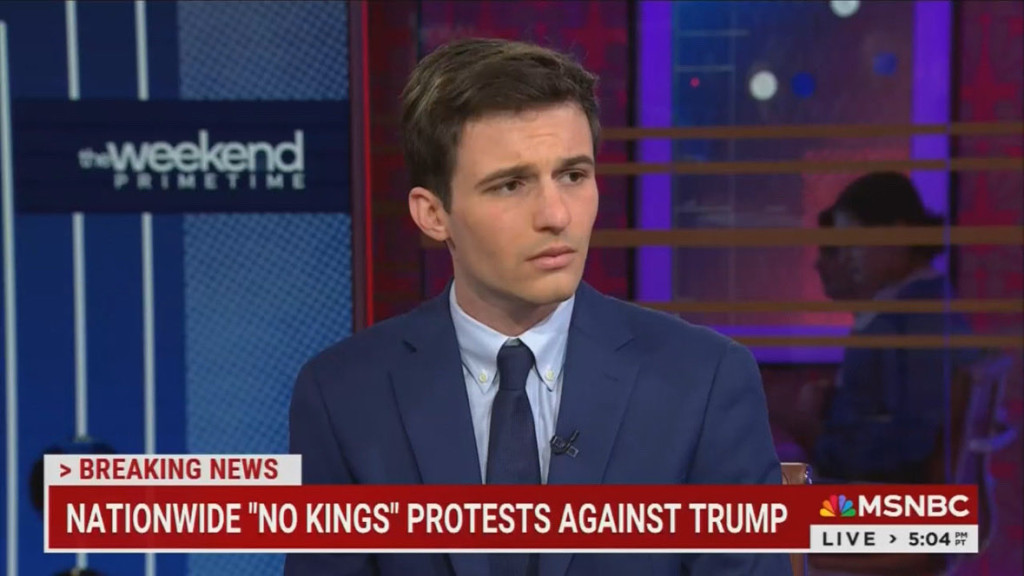Over the weekend, nationwide protests under the banner of #NoKings drew thousands of demonstrators, but Cameron Kasky says one notable demographic appeared largely missing: Generation Z.
The Activist and commentator took to the streets himself and subsequently reflected on why younger participants were scarce.
“My generation saw the definitive movements of our lifetime—Black Lives Matter, Me Too, the March for Our Lives—and said, ‘Ok, we’re still watching Black boys get murdered by cops. Somebody’s getting put up for mayor in New York City who has a dozen credible sexual harassment allegations. We’re still seeing schools get shot up. What are these protests going to do for us?’” Kasky told MSNBC’s The Weekend.
I didn’t see a lot of other Gen Z’s at #NoKings and I explain why I think so here: pic.twitter.com/y8D0hpAfUU
— Cameron Kasky (@camkasky) October 20, 2025
He described observing many older protestors, Boomers who grew up with the civil-rights marches of the 1960s, and contrasted their visible presence with Gen Z’s low turnout.
“The Boomers… they saw the protests, and there was something tangible that came out of that. But the protests we’ve seen? There’s been so much great awareness, there have been victories on a smaller level, but they haven’t felt like what we are going for.”
Kasky suggested several reasons for Gen Z’s hesitancy. He argued that younger activists are reluctant to join unless they believe their efforts will produce measurable outcomes, not just awareness or symbolic unity.
He also noted that today’s youth have grown up amid continuous crises—gun violence, systemic racism, climate disaster—and may feel fatigued by yet another movement without clear deliverables.
Still, Kasky emphasized that Gen Z’s absence may not reflect disinterest but rather a recalibrated approach to activism. “We weren’t there… because maybe we’ve learned that being seen doesn’t always mean being changed.”
If future mobilizations are to include younger generations, they must address Gen Z’s demand for accountability, outcome-based goals, and digital-native modes of engagement.




